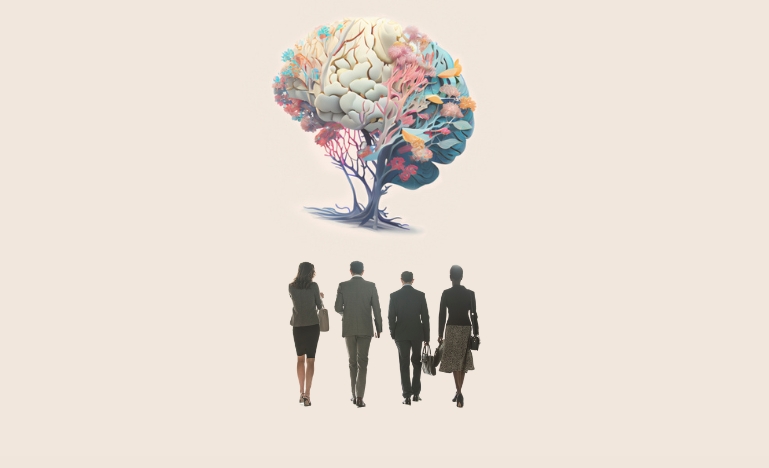Leading through the mental health crisis
It will take a change in culture, which will have to come from the top.

With lawyers experiencing poor mental health at alarming levels, it's up to the leaders in legal organizations to create an environment that recognizes and supports those affected by anxiety, depression, burnout, and addiction issues. It begins with holding candid discussions and offering meaningful treatment options.
But that takes a change in culture — something that needs to come from the top, said former Chief Justice of Ontario George Strathy. Those in charge "need to understand that mental health is not some mushy, feel-good issue. Yes, of course, it's a human issue, but it's a business issue, a productivity issue, a resource management issue. Good mental health, like good physical health, is essential to the well-being of every organization and every member of the organization."
Speaking at a November 2023 CBA conference in Toronto, Justice Strathy said that lawyers are often afraid to talk about mental health due to its attached stigma, concerned that speaking out about their feelings and experiences will be seen as a sign of weakness, instability, or unreliability. "Senior lawyers need to be honest about their own personal experiences, good and bad, and share their ideas about how to maintain good mental health in a successful practice."
All too often, lawyers don't seek the help or accommodation they need out of concern it will affect their prospects within the firm and the quality of the work they receive. But lawyers who have received treatment have better mental health outcomes than those whose illness goes untreated until a dramatic breakdown and burnout occurs, said Strathy. "Good mental health, like good physical health, is essential to the well-being of every organization and every member of the organization."
A focused approach
The billable hour contributes so much to the stress and anxiety lawyers experience, Strathy said. "Lawyers are at higher risk than the general population for undergoing career and life challenges, mental illness, and addictions."
Unfortunately, lawyers are less likely than other professionals to seek help for their mental health issues, Justice Strathy added. "Even more troubling, those in our profession most affected by mental illness include new members of the profession, women and those already experiencing feelings of stress and not belonging, such as members of the LGBTQT2S+ communities and lawyers with disabilities."
Incivility, microaggressions, bullying, harassment, sexist and racist comments, and other offensive conduct occur every day in law firms, which takes a considerable toll. Law firm leaders must make it clear that this is unacceptable and tolerate zero tolerance in the firm for such behaviour. Strathy suggests modifying rules of professionalism and civility and adding a code of conduct for law firms.
He also advocates for better training for managers — too many are appointed without receiving any. What's more, he would ensure meaningful mentoring for all newer lawyers, paying particular attention to those who are most vulnerable.
He suggests banning all unnecessary communications in the law firm, including memos, texts, emails, and non-productive meetings, all of which generate stress and anxiety.
Most importantly, Justice Strathy would "protect the mental health of everyone who works in the organization by respecting and protecting their right to have meaningful downtime for rest, recovery and recharging, and by setting and enforcing appropriate boundaries for work and life."
National well-being study
According to the 2022 national well-being study funded by the Federation of Law Societies of Canada and the CBA, one in five Canadian lawyers experience some form of mental illness.
The study noted that 24.1% of legal professionals had experienced suicidal thoughts since they started practice. "It's not surprising that "more than 27% are considering leaving the profession," said Dr. Nathalie Cadieux of the Université de Sherbrooke, who led the research effort. "And nearly 30% dream of practising another profession that would better meet their needs."
Conference speaker Doron Gold wondered how much talent has been lost due to mental illness. The time spent bringing a lawyer into the firm is "thrown away because you didn't treat them like a human being, and they didn't hang around. This is a loss of talent." In addition to the business case for retaining lawyers and simply being the right thing to do, "it's good for the profession, it's good for the administration of justice."
Training is available
Speakers at the conference wanted to see a culture shift, with law firms and organizations being open and helpful in normalizing conversations about mental illness, as well as schools and regulators. A regular wellness check-in during meetings would be a good place to start.
Former Justice Anne-Marie Hourigan of the Ontario Court of Justice strongly supports education and awareness about mental health, saying lawyers should be knowledgeable about their mental health but also be able to support their colleagues at law firms.
Hourigan, who spent the last six years on the board of the Mental Health Commission of Canada, said the Commission offers a program called Working Mind Legal, a workplace mental health education and awareness program within the context of the legal profession that seeks to change behaviours, attitudes, and stigma toward people living with mental illness. Some Canadian law firms have already taken the course, and some have provided a safe space, with workshops and discussions about mental health.
Those struggling with mental illness often face judgment, ignorance, and criticism about it from bosses and colleagues when they are unable to handle stress, multitask, or keep up with the pace of work, said Carole Dagher, VP, Legal, Loblaw Companies Limited in Toronto. "There's almost an outright dismissal of people's mental illness struggles," she said. Often, those who seem at first glance to be on top of things are, in fact, struggling, she said, likely "because it's an invisible thing as opposed to cancer or a broken leg, which is more visible."
Many large organizations in Canada have policies and procedures about dealing with mental illness, but practical support is often non-existent, and they should provide sufficient training throughout the firm, said Dagher.
Legal leaders must do more than tell suicidal people to call a 1-800 number to seek help, said Dagher. And when those in charge behave as if they're invincible, "it deters others from being candid and open and bringing their authentic selves to work. All the policies and procedures and 1-800 numbers in my mind are irrelevant until leaders in the organization become authentic in their leadership."


